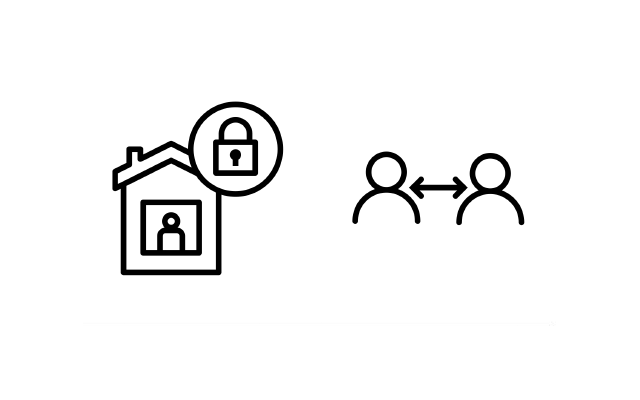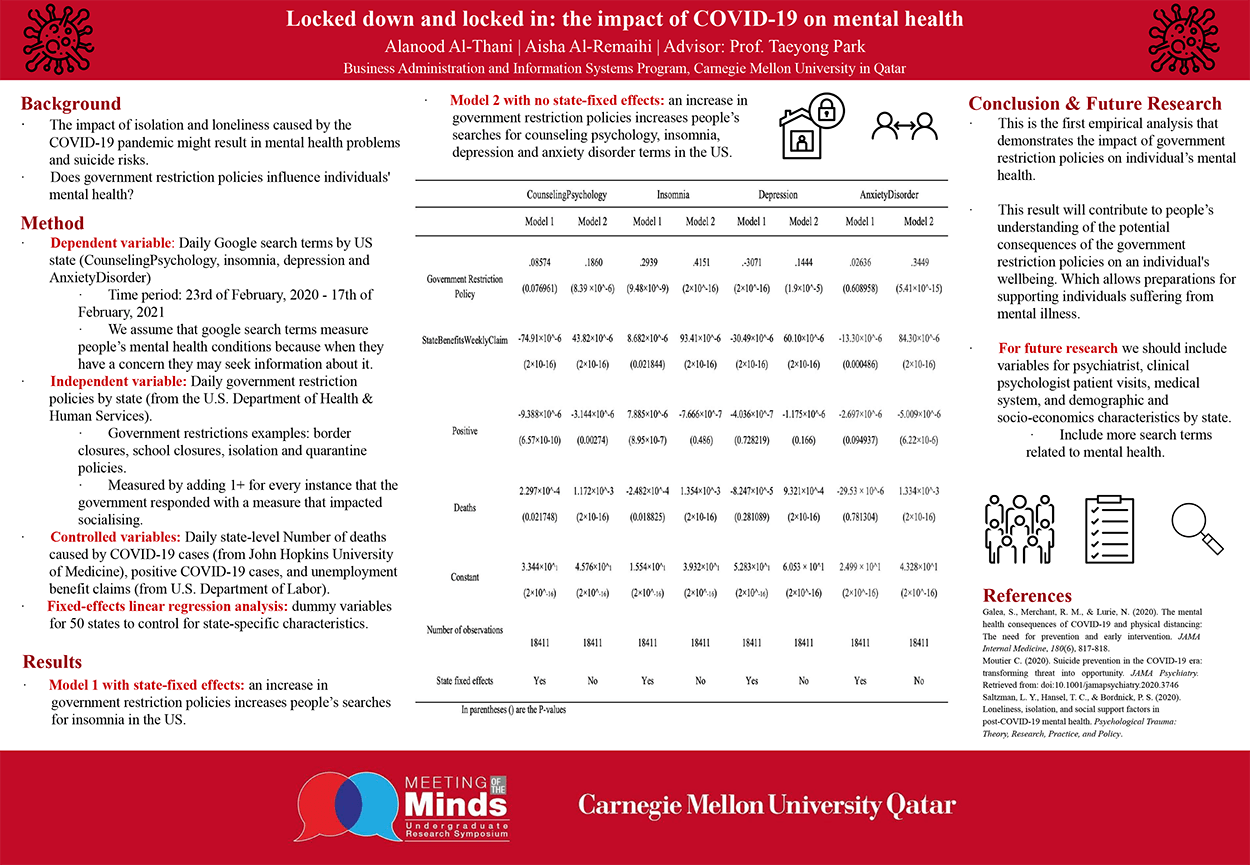The coronavirus (COVID-19) pandemic has had a significant socio-economic impact worldwide. The lack of an effective vaccine or medication to combat the virus has resulted in significant mortality rates on a global scale. Since the first acknowledged COVID-19 infections, which began emerging in December 2019, a variety of restrictive measures have been put in place to control the spread of the virus, such as stay-at-home orders or travel bans. Consequently, the restrictive measures alongside the distress caused by COVID-19 could deteriorate individual people’s mental health. The aim of this research is to examine whether government restrictions in the United States due to COVID-19 have an impact on people’s mental health. Due to government restrictions, individuals may suffer from a lack of human interactions and their disrupted daily life. We use US state-level Google search data for “depression”, “anxiety disorder”, “insomnia” and “counseling psychology” to use them as a proxy measure for people’s mental health conditions. Also, we collected data from the U.S. Department of Health and Human Services to measure government restriction policies by state. Linear regression analysis is used to estimate the effect of government restrictions on people’s mental health, controlling for the numbers of COVID-19 cases, deaths and unemployment conditions.



